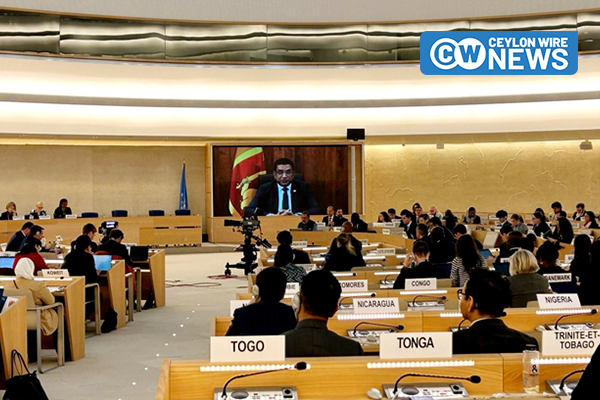In a pre-recorded video statement on February 27th, Sri Lanka’s Foreign Affairs Minister, Ali Sabry, addressed the High-Level segment of the 55th Session of the United Nations Human Rights Council (UNHRC), urging the council to refrain from being swayed by short-term political gains or “domestic vote bank politics.”
Minister Sabry emphasized that despite the challenges faced by Sri Lanka, the country remains actively and constructively engaged with the council, utilizing various effective working methods beneficial to its people. He underscored Sri Lanka’s rejection of UNHRC Resolutions 46/1 and 51/1, along with the external evidence gathering mechanism established by these resolutions. Sabry argued that such mechanisms are counterproductive, contradicting the council’s foundational principles.
Providing an overview of the country’s tangible progress in economic recovery, national unity, and reconciliation, Minister Sabry asserted that pragmatic policy decisions prioritizing long-term welfare over short-term political gains are the cornerstones of this success. He highlighted that this progress has gained recognition both locally and internationally.
Expressing concern over the council’s approach to the humanitarian crisis in Gaza, Sabry urged prioritization of de-politicization, constructive dialogue, and multilateral cooperation while avoiding double standards. He indicated that the council’s handling of the Gaza crisis would serve as a litmus test to its credibility.
The ongoing 55th Session of the council in Geneva, spanning from February 26th to April 5th, 2024, will see the UN High Commissioner for Human Rights presenting an oral update on Sri Lanka on March 4th, as mandated by HRC Resolution 51/1. Sri Lanka’s Permanent Representative to the UN in Geneva, Himalee Arunatilaka, will deliver the country’s statement following the oral update by the High Commissioner.









